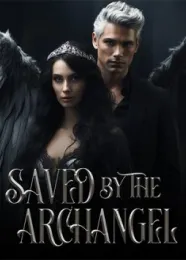Chapter 2. The Ultimatum
The apartment felt alive with its own stench—stale beer mingling with the sour tang of unwashed laundry, a damp undertone of sweat-caked sheets, the kind of thick, human rot that no amount of open windows could ever fully dispel. Every surface seemed to hum with its rancid presence, pressing against her nostrils like a reminder of everything she’d tried to ignore.
Alyssa sat huddled at the small kitchen table, shoulders tense, her fingers curled tightly around a chipped ceramic mug of instant coffee so cold it had grown a fragile skin on its surface. That flimsy, filmy layer floated atop like a decaying scalp, reminding her that time kept slipping by even when she could barely stand to think about it.
She was still in her work uniform—white sneakers scuffed raw from marching endless corridors, the soles worn thin where her feet had pressed hardest. The fabric of her sleeves carried the faint, acrid whisper of bleach, a scent she could almost taste on her tongue.
Her back ached from hours of leaning, her legs had gone numb and tingly, but she remained frozen, eyes fixed on the way the sunlight punched through the blinds in brittle, meager strips. Those pale bars sliced across the table like prison rails, and she let them remind her that she’d been trapped here for hours—waiting for her father to wake, waiting for a shred of relief from the shame that had settled in her chest like a rot.
In the center of the table lay a single envelope, its paper worn soft by repeated handling. The edges were frayed, the flap bent back on itself, as if it had been clasped and unclasped like a rosary by someone praying for a miracle that never came. She’d read the crumpled note inside at least twenty times, hoping by the twentieth read-through the words would rearrange themselves into something kinder, less condemning. But the numbers stared back just the same.
A distant groan rumbled through the floorboards, low and animalistic, followed by the slow drag-scrape of feet on warped wood. Anxiety coiled in her gut. Here it came.
Danilo stumbled into the kitchen wearing yesterday’s faded jeans and a T-shirt marred by a nicotine-stained thumbprint at the collar. His hair stuck up in unruly tufts, as though he’d wrestled with sleep and lost. He didn’t meet her eyes—just shuffled around her to the counter, dragging one foot behind like it weighed a ton.
Without a pause, he seized the half-empty bottle of vodka resting on the counter and tipped a few fingers of the clear liquid into a chipped mug emblazoned with a cartoon penguin. Alyssa watched the vodka catch the slanting light, then swirl down in a cool, liquid arc.
“You’re up early,” he muttered, voice thick with drowse.
She tilted her head without looking away. “I didn’t sleep.”
He tossed back a sip, his nose wrinkling. “Dramatic.”
Her gaze drifted to the envelope. Slowly, deliberately, she picked it up and set it before him, the paper crackling faintly under her fingertips.
“Tell me exactly how much you owe them,” she said, voice steady.
He took another draw from his mug as if the alcohol were armor. “A couple hundred grand.”
Her stomach clenched tight, bile rising. “What?”
“Two-fifty, maybe. It was supposed to be a sure thing. The stock was gonna pop. I just needed a little leverage—”
“You took a quarter million dollars from criminals?” The words slipped out before she could soften them.
He waved the accusation away like a buzzing fly. “They’re not criminals. They’re businessmen. With teeth. That’s all.”
Her pulse thundered in her ears. She pushed to her feet, pacing in a small circle, the worn linoleum cold beneath her socks. The thinness of that floor made her feel even smaller, more exposed.
“You told Aunt Kira it was a few thousand,” she said.
“That was then.” He shrugged, an infuriating flicker of nonchalance in his posture. “Things escalated.”
She stopped so suddenly the tension in the air snapped. A laugh tumbled out—short and ugly, alien to her own ears. “Yeah. No shit things escalated.”
Danilo turned, his eyes red-rimmed and glassy. Something flickered behind them—bitterness, not regret. “You think you’re better than me,” he spat, low and venomous. “With your little cashier job and your charity-case morals. You think I wanted this? To be stuck here, scraping rent from couch cushions and bottle returns?”
“No,” she said softly. “I think you don’t care who you drag down with you.”
His jaw clenched. In a blur, he slammed his mug onto the table, vodka splashing over the edge, dark droplets melting into the wood. “You live here for free, Alyssa,” he barked. “You eat because I pay for it. I gave you life.”
She braced herself against the table’s edge, eyes locked on his. “You gave me trauma, Danilo.”
In the next heartbeat, his hand shot out and gripped her wrist like iron, bruising. He shoved her back until her shoulder hit the refrigerator with a thud, his palm braced against her arm.
“You don’t walk away from this,” he hissed. “Not until you’ve done your part.”
Alyssa’s breath came in shallow gasps. She felt the rough warmth of vodka on his breath as she stared him down, refusing to blink. Then, with a sharp twist, she wrenched her arm free.
“Or what? You’ll sell me? Hand me off to the highest bidder for another goddamn stock tip?”
He sneered, stepping back. “I already found someone.”
His words landed like a fist in her gut. He smoothed his shirt, his voice shifting into a practiced slickness.
“He’s rich. Powerful. Knows people. He could make the debt vanish. All of it. Gone.”
She pressed her lips together. “What’s the catch?”
Danilo tilted his head, a smug glint in his eye. “He wants a guarantee. Something personal. Something… binding.”
She recognized the hesitation in his mouth before it formed into sound.
“You.”
A hollow silence settled between them, thicker than the fog of booze that had settled in her brother’s veins. He drank again, then wiped his mouth with the back of his hand.
“You meet him. You talk. He makes you an offer. You say yes.”
“And if I don’t?” she asked, voice barely above a whisper.
He smiled. It was the worst thing she’d ever seen on his face: vacant, smug, a man who’d convinced himself that selling his own sister was just business.
“Then they come for me. And when I’m gone…” He leaned forward, tapping the frayed envelope. “Who do you think they’ll come for next?”
She didn’t need to answer. The question hung in the stale air like a guillotine blade, and they both already knew the outcome.
***
By the time she finally stepped outside, the sun had climbed fully into the sky. The morning air was cold, damp, and sharp against her skin, a contrast to the wilting warmth of the apartment. A low fog curled around the streetlights, turning halos of yellow into watery moons. People rushed past, bundled in thick coats, carrying steaming travel mugs, their faces set and determined—a world that didn’t know her name, didn’t know her story.
She stood still, letting the blur of pedestrians and cars sweep around her. A delivery truck honked behind her, its horn echoing off the brick facades. Somewhere, a dog barked, and then, muted by distance, a siren wailed its urgent cry. The city moved on.
Her fingers trembled as she reached into her pocket and pulled out her phone. The number scrawled on the back of her brother’s letter was handwritten, each letter precise, controlled—the opposite of her own shaky script. Just below the digits lay a scrap of paper and a half-dried pen. Her hand hovered over the phone, then drifted instead to the pen.
Without conscious thought, she pressed it to the paper and began to draw. A single line at first—careful, deliberate—then another. The curve of a jaw, a set of cold, unreadable eyes. Each stroke brought her closer to reclaiming something she’d thought lost: her voice, her agency. She hadn’t drawn in months, not since the last eviction notice pinned her to a corner of the world with no escape. But her hand remembered the muscles, the subtle tilt of fingers, the way a pen felt like a lifeline in dark waters.
The man emerging on the page was only a silhouette so far, shoulders broad, features sharp, his mouth set in a line that offered no comfort. She sketched the idea of him—the kind of man who promised salvation with barbed hooks at the end. Still, her needle-thin fingers didn’t pause. Each line was a question. Each shadow a doubt she couldn’t voice.
When at last she lifted her eyes from the drawing, the fog had lifted just enough to reveal the city’s edges. She slid the pen into her pocket, her breath steadying. Then her fingers found the phone again, and she dialed.
It rang once. Twice. On the third chime, a voice answered—smooth, male, unnervingly calm. “You’ve reached the office of Mr. Maximilian Wolfe.”
Her heart thudded in her chest. She hesitated for a heartbeat, listening to the silence on the other end, then found her own voice.
“This is Alyssa Rein.” A pause. An intake of breath. Then: “I’ll take the meeting.”









